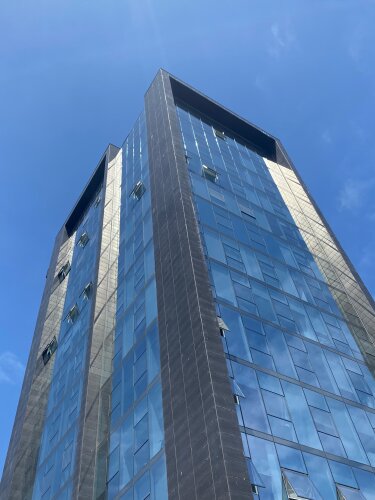Best Licensing Lawyers in Chile
Share your needs with us, get contacted by law firms.
Free. Takes 2 min.
Or refine your search by selecting a city:
List of the best lawyers in Chile
About Licensing Law in Chile
Licensing in Chile refers to the legal process of acquiring permission or authorization to conduct certain activities, such as operating a business, selling products, or using intellectual property. This process involves obtaining a license from the relevant government authority or regulatory body.
Why You May Need a Lawyer
You may need a lawyer for licensing issues in Chile if you encounter complicated legal requirements, face opposition from competitors, need to negotiate licensing agreements, or if you are seeking to protect your intellectual property rights. A lawyer can help ensure that your licensing process is smooth and that your rights are protected.
Local Laws Overview
In Chile, licensing laws are governed by various regulations and statutes depending on the type of license being sought. Key aspects to consider include compliance with government regulations, contract negotiations, protection of intellectual property rights, and resolving any disputes that may arise during the licensing process.
Frequently Asked Questions
1. What is the process for obtaining a business license in Chile?
The process for obtaining a business license in Chile involves submitting an application to the relevant government authority, providing necessary documentation, and paying any applicable fees. The specific requirements may vary depending on the type of business and industry.
2. How can I protect my intellectual property rights when licensing in Chile?
To protect your intellectual property rights in Chile, it is important to register your trademarks, patents, or copyrights with the Chilean Intellectual Property Office. Additionally, including clear licensing terms in your agreements can help prevent infringement.
3. What are the consequences of operating without a valid license in Chile?
Operating without a valid license in Chile can result in fines, penalties, or even legal action. It is important to ensure that you have all necessary licenses and permits before conducting any business activities.
4. Can I transfer my licensing rights to another party in Chile?
Yes, licensing rights can be transferred to another party in Chile through a licensing agreement. It is important to clearly outline the terms of the transfer, such as the duration of the license and any restrictions on use.
5. How can I resolve a licensing dispute in Chile?
Licensing disputes in Chile can be resolved through negotiation, mediation, or by seeking legal recourse through the courts. It is advisable to consult with a lawyer to determine the best course of action based on the specific circumstances of the dispute.
6. Are there any tax implications for licensing agreements in Chile?
Yes, licensing agreements in Chile may have tax implications, such as withholding taxes on royalty payments. It is important to consult with a tax advisor or lawyer to ensure compliance with tax laws when entering into a licensing agreement.
7. What is the duration of a licensing agreement in Chile?
The duration of a licensing agreement in Chile can vary depending on the terms negotiated between the parties. It is common for licensing agreements to have a specified term, after which they can be renewed or terminated based on the agreement of the parties.
8. Can foreign individuals or companies obtain licenses in Chile?
Foreign individuals or companies can obtain licenses in Chile, but they may be subject to additional requirements or restrictions. It is advisable to consult with a lawyer familiar with licensing laws in Chile to understand the specific regulations applicable to foreign entities.
9. What is the role of the Chilean Intellectual Property Office in licensing matters?
The Chilean Intellectual Property Office is responsible for registering trademarks, patents, and copyrights, which are essential for protecting intellectual property rights in licensing agreements. It is recommended to consult with the Intellectual Property Office for guidance on intellectual property protection in Chile.
10. How can I ensure compliance with licensing laws in Chile?
To ensure compliance with licensing laws in Chile, it is important to stay informed about the relevant regulations, maintain accurate records of licenses and permits, and seek legal advice when necessary. Regularly reviewing and updating licensing agreements can also help prevent compliance issues.
Additional Resources
For more information on licensing laws in Chile, you can consult the Chilean Ministry of Economy, Development, and Tourism, the Chilean Intellectual Property Office, or seek assistance from legal organizations such as the Chilean Bar Association.
Next Steps
If you require legal assistance with licensing matters in Chile, it is recommended to consult with a licensed attorney who specializes in licensing law. They can provide guidance on navigating the licensing process, drafting agreements, resolving disputes, and ensuring compliance with local laws.
Lawzana helps you find the best lawyers and law firms in Chile through a curated and pre-screened list of qualified legal professionals. Our platform offers rankings and detailed profiles of attorneys and law firms, allowing you to compare based on practice areas, including Licensing, experience, and client feedback.
Each profile includes a description of the firm's areas of practice, client reviews, team members and partners, year of establishment, spoken languages, office locations, contact information, social media presence, and any published articles or resources. Most firms on our platform speak English and are experienced in both local and international legal matters.
Get a quote from top-rated law firms in Chile — quickly, securely, and without unnecessary hassle.
Disclaimer:
The information provided on this page is for general informational purposes only and does not constitute legal advice. While we strive to ensure the accuracy and relevance of the content, legal information may change over time, and interpretations of the law can vary. You should always consult with a qualified legal professional for advice specific to your situation.
We disclaim all liability for actions taken or not taken based on the content of this page. If you believe any information is incorrect or outdated, please contact us, and we will review and update it where appropriate.
Browse licensing law firms by city in Chile
Refine your search by selecting a city.















